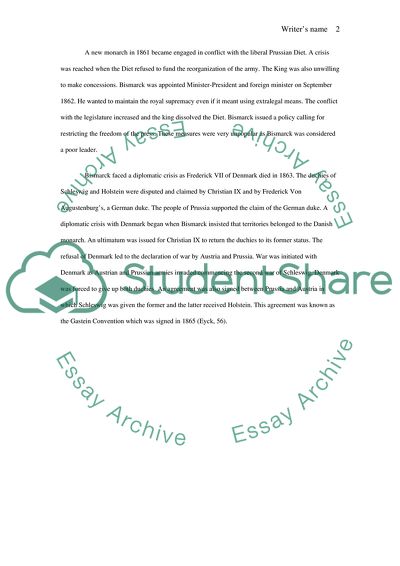Cite this document
(Diplomatic Career and Strategies of Otto von Bismarck Case Study, n.d.)
Diplomatic Career and Strategies of Otto von Bismarck Case Study. https://studentshare.org/history/1713150-diplomatic-career-and-strategies-of-otto-von-bismarck
Diplomatic Career and Strategies of Otto von Bismarck Case Study. https://studentshare.org/history/1713150-diplomatic-career-and-strategies-of-otto-von-bismarck
(Diplomatic Career and Strategies of Otto Von Bismarck Case Study)
Diplomatic Career and Strategies of Otto Von Bismarck Case Study. https://studentshare.org/history/1713150-diplomatic-career-and-strategies-of-otto-von-bismarck.
Diplomatic Career and Strategies of Otto Von Bismarck Case Study. https://studentshare.org/history/1713150-diplomatic-career-and-strategies-of-otto-von-bismarck.
“Diplomatic Career and Strategies of Otto Von Bismarck Case Study”. https://studentshare.org/history/1713150-diplomatic-career-and-strategies-of-otto-von-bismarck.


